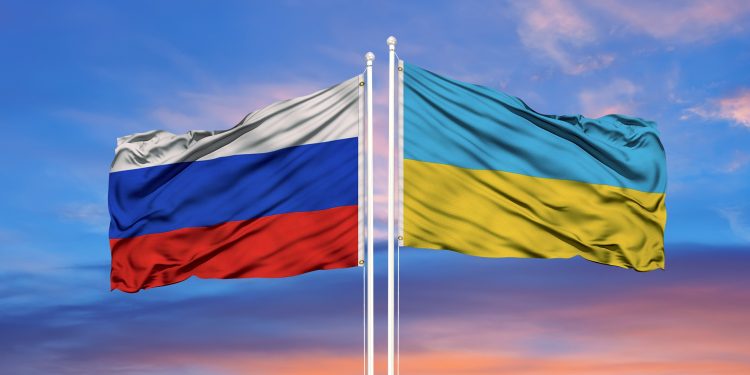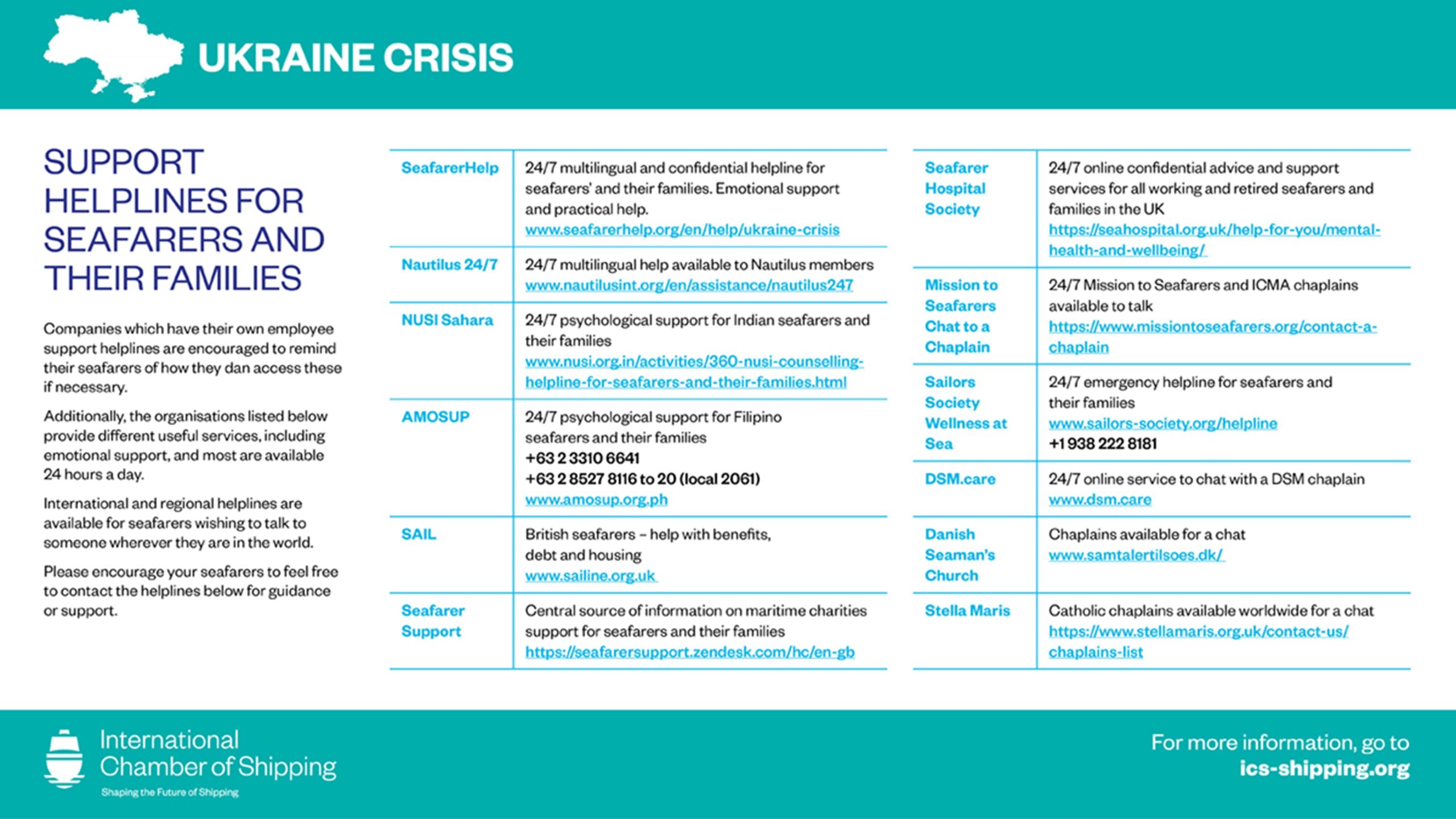While all countries were still on the process of recovering from the COVID-19 pandemic, the economic impact and the energy crisis resulting from the Russian-Ukraine war is overwhelming, impacting the shipping industry as well.
On 24 February, the Russian President, Vladimir Putin, announced that Russia was initiating a “special military operation” in the Donbas and launched a full-scale invasion into Ukraine. The invasion has caused a large refugee crisis in Europe, with over 3.5m Ukrainians fleeing the country. The ongoing situation is fast moving. The Russia-Ukraine war has had its fair share of impact on businesses, especially on the logistics sector, and this is because the two countries are some of the biggest exporters of raw materials worldwide. Many industries face the prospects of supply chain issues and macroeconomic headwinds.
Accordingly, one of the many industries that have been affected is definitely the shipping industry. Several changes in the operational status of the world’s ports have been noticed, created quite challenging conditions for the seafarers. It is undeniable that this new reality is already leaving quite a mark on the shipping industry and is creating new shocks to its labor force. And this is because the sanctions against Russia are also going through the logistics and the supply chains and, thus, create concerns for the transport of good and commodities.
As the war continues, it is not clear what will happen next. But important questions arise: What are the impacts of the conflict on the maritime industry and how is the seafarers’ life around the world threatened by this situation?
According to ICS, “Fears over crew safety and increasing insurance premiums to send ships to Ukraine or Russia have also discouraged shipowners from sending vessels to these countries. Industry has reported that some crews have abandoned their ships in Ukraine due to security worries.”
The economic impact
The economic effects of the war left many households around the world wondering how the conflict might eventually hit their wallet. In late February, many banks and trading companies started engaging more and more in a “self-sanctioning” regime against Russian entities in the shipping and commodities sector. One cannot help but notice the uncertainty of the contractors and the concerns over security that complicate the trade routes going through Russia and Ukraine; and this is because the two countries are a key geographical component.
Almost 2 weeks after the invasion of Ukraine, petrol prices reached record high: oil jumped to $139 a barrel at one point, the highest level for almost 14 years, BBC reported. According to Clarksons, the sanctions have led to significant freight rate increases. In the meantime, a significant impact on oil and vessel prices is to be expected since many tankers becomes unavailable for businesses.
How ship operations have been affected
Taking as an example the container sector, we can see that the conflict has affected it in two ways:
- It has resulted in higher oil prices
- It has led many countries to impose sanctions on Russia to isolate the latter.
The increase in bunker prices will likely put further upward pressure on freight rates in an already historically high market.
According to CNBC, cargo movements are at a standstill as the Ukrainian ports of Odessa and Mariupol are closed, damaged or under attack. Specifically, the port of Odessa is Ukraine’s largest and a major grain export port. It is worth noting Russia and Ukraine account for about 29% of the global wheat export market.
Windward’s data indicates that in the past weeks, there has been a decrease in the number of bunkering operations by Russian-owned vessels fueling non-Russian-owned vessels. As additional restrictions come into play, even further decrease of bunkering operations executed by Russian-owned vessels is expected.
A representative from supply chain software platform Keelvar, told CNBC, that the flying ban resulted in canceling many flights and removed 10m miles of airspace from international freight routes. While the airlines are responsible for carrying 20% of cargo, this situation will decrease capacity provided by the carriers. Additionally, the oil prices will worsen the already bad outlook for carriers, as the cost of fuel continue to rise.
Many of the containers that are stuck on docks have to undergo long processes and customs inspections in order to ensure that they are not carrying blacklisted items, such as spare airplane parts or semiconductors. According to Windward, it may have taken some time, but the U.S energy ban and the European Flag ban are coming into effect, causing great confusion for those out on the water.
The deterioration of the security situation in Ukrainian ports and anchorages, has led the Ukrainian Maritime Administration to issued guidelines for hot and cold lay-up of vessels, such as the design of lay-up procedures, the factors to take into consideration when evaluating the safety of layup locations, considerations regarding manning, etc.
Sanctions against Russia
Following the illegal invasion of Ukraine, NATO, EU, US, and UK have imposed sanctions against Russia and continue to make additions to the designated entities lists, so that all members and countries can ensure that they care out careful examination and inspection using the updated lists.
Up until now there have been sanctions to:
- Luxury goods, vodka, and travel (all Russian flights have been banned from US, UK, EU, and Canadian airspace).
- Targeting individuals (business leaders known as oligarchs)
- Oil and gas (US ban all Russian oil and gas imports and UK will phase out Russian oil by the end of 2022. EU plans to switch to alternative supplies and will be independent from Russian energy by 2030)
- Financial measures
Several stakeholders condemn Russia’s invasion
As announced, following this situation, IACS decided to expel the Russian Maritime Register of Shipping from their Ranks. IBIA also joined others condemning Russia’s invasion of Ukraine and suspends all services to Russian members of the Association. In the same direction, Lloyd’s register announced its decision to disengage from the provision of all services to Russian owned, controlled, or managed assets or companies. Lastly, DNV will not go into new business with Russian companies nor into new business activities in the country. After careful consideration of the situation in the Ukraine and the Black Sea as well as the applicable sanctions, ABS decided to withdraw all Class services involving Russian vessels, assets, and companies.
Recently, the Government of Australia announced an immediate ban on Australian exports of alumina and aluminum ores (including bauxite) to Russia, in order to ensure that Moscow pays a high price for its violation of the UN Charter. Swedish Dockworkers Union has also given notice about nationwide blockade against Russian ships and cargo.
Impact on seafarers
Together Russia and Ukraine account for nearly 15% of the world’s 1,89 million seafarers. After spending several months being stuck at sea because of the COVID-19 pandemic, the current war in Ukraine is making hundreds of thousands of seafarers once more to be stuck for an uncertain period of time; and this can have a major impact on the maritime transport.
Since the beginning of the conflict on February 24, three Panama-flagged ships have hit by missiles in the Black Sea. Of these, one has sunk, while the other two remain in the area, having sustained damages. Luckily, no casualties of the crew were reported. The nearby ports are closed, and ships aren’t leaving out of fear that they will be hit by missiles or underwater mines in the Black Sea. Unfortunately, in the first week of March, a seafarer was reported killed at the port of Oliva after his cargo vessel was hit by a missile.
As of March 14, there have been reported about 100 foreign-flagged vessels and more than hundreds of mariners stranded in the Ukrainian ports. At the same time, projectiles have also hit vessel resulting in them sinking. Russia had taken control of water channels in the Sea of Azov and the Black Sea since the invasion of Ukraine on February 24.
What is more, the crew members’ mental health is devastated out of fear and panic, especially when they see missiles hitting the ships next to them. It is crucial to ensure access to medical and psychological care for seafarers. On top of that, many seafarers coming from Russia and Ukraine have been refused entry at the US ports, a situation that could block the ships from getting crew changes done – a crucial procedure that establishes safety and makes sure that crew members are well-rested. In the meantime, seafarers may find it difficult to collect the wages they’re owed or send money home to their families.
According to the Belgian Shipowners: “It will be a major challenge to find sufficient seafarers worldwide if the war continues. That could cause a huge disruption to the entire global maritime transport.”
The lack of Ukrainian and Russian seafarers could cause chaos at sea. A significant majority of them are officers and many of them are working on gas, oil tankers and/or containers. It will be a major challenge to find sufficient seafarers worldwide if the world continues. That can have a great impact and a huge disruption to the entire global maritime transport.
Industry’s initiatives
Following this unfortunate situation, many initiatives have been taken from various countries and governments to help the seafarers across the world, such as:
- INTERCARGO was one of the first organization to call on the IMO, the member states and the governments to engage effectively with the involved countries and local authorities to ensure safe passage out of danger for ships and their crews.
- The International Maritime Organization (IMO) agreed to encourage the establishment of a blue safe maritime corridor to allow the safe evacuation of seafarers and ships from the high-risk and affected areas in the Black Sea and the Sea of Azov to a safe place to protect the life of seafarers. In Greece, the Union of Greek Shipowners (UGS) welcomed this decision. Similarly, ICS fully supports the establishment of a maritime corridor noting that seafarers must be allowed to depart the area of conflict and avoid further humanitarian incident.
- ShipMedCare, a tele-medical service provider in Greece, joined forces with Prime Marine Management, a Greek-based shipping company, to help battle the humanitarian crisis affecting the families of their seafarers.
- In an international level, Human Rights at Sea called for help to raise £50,000 to support its work in Ukraine and help with the humanitarian crisis caused by the war
- The International maritime charity Sailors’ Society has also launched a Ukrainian Crisis Appeal to support desperate seafarers caught up in the conflict.
- The Merchant Navy Welfare Board (MNWB) has launched an emergency sim card fund of £5,000 to ensure Ukrainian seafarers can contact loved ones back home.
- In addition, the Seafarers International Relief Fund also has launched a new appeal to the maritime industry, to support the seafarers and their families that are affected. The SIRF is currently addressing basic human welfare, such as shelter, food, water, transport, access to medical services, along with practical financial help.
- The Paris MoU Advisory Board (MAB) provided guidance on repatriation of the seafarers, acknowledging that the effects on repatriation are not limited to Ukrainian seafarers on board ships flying the flag of Ukraine, but to all seafarers caught up in this present situation.
- The Merchant Navy Welfare Board (MNWB) launched an emergency sim card fund of £5,000 to ensure Ukrainian seafarers can contact loved ones back home.
In a table as shown below, ICS gathered a list of support helplines for seafarers and their families impacted by the Ukraine crisis.































































